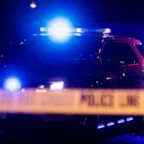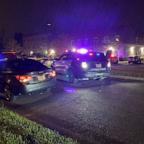NFL regards rash of false positives as 'rare event'
The NFL is regarding its weekend COVID-19 testing problems as an "incredibly rare event," chief medical officer Allen Sills said Monday, and believes that its existing protocols have already proved effective in paving the way for the 2020 season.
In a conference call with reporters, Sills noted that BioReference, the league's testing and lab partner, has conducted nearly 200,000 tests since the start of training camp. The league identified 77 false positives among 11 teams on Saturday and Sunday, the result of contamination in a New Jersey lab. All 77 individuals were ultimately cleared to return to team facilities after being retested.
"We all want that [77 number] to be zero," Sills said, "but it's a tiny fraction of the overall testing that has been done. And I think it speaks to the fact that, overall, our testing program has worked extremely well. To me, the most important thing is that we've gotten through four weeks [of training camp] thus far without any of our clubs having a major outbreak.
"It's far too early to celebrate that, but I do think we should acknowledge that our clubs have done a terrific job -- players, coaches, and staff -- in following our protocols. Our protocols are working. I think we've shown that they've had the results that we want, and the events of this weekend shouldn't change that view."
In the most recent testing period, Aug. 12-20, the NFL conducted 58,397 tests on 8,573 players, coaches and staff. No players produced a confirmed positive test over that time frame. There were six confirmed positive test results among other staff members.
Those numbers were an improvement over the previous reporting period, which the league already was encouraged by. From the start of training camp through Aug. 11, the NFL conducted 109,075 total tests. The overall positivity rate was 0.46% on those tests, and 0.81% for players.
The issue of false positives might be the NFL's biggest testing concern, given the impact they could have on a game. Current protocol requires any player, coach or staff member who tests positive to stay away from the team facility and undergo two more tests in the next 24 hours, even if the person is asymptomatic. If both of those tests return negative, the individual is readmitted to the facility.
That time frame could make it tough for the NFL to weed out false positives from late-week testing in time for weekend games. The league and the NFL Players Association are still working on testing protocols for the regular season, but Sills said the league would continue to "err on the side of keeping people out of team activities" until a false positive can be confirmed to be false.
Sills, however, said the league and BioReference have identified the source of contamination that led to the 77 false positive tests and have taken steps to avoid future issues.
Patti Walton, an independent medical adviser who is working with the NFL, said the contamination likely occurred when a lab employee was underneath a "hood" used as a "biological safety cabinet."
"Transfer can be from the person who is working under the hood," Walton said. "It can be from their hand or their glove. It can be from the base of the hoods, the side of the hood, the glass. That's the reason we have very robust cleaning programs for our hoods, making sure we clean before and after we process a run underneath a hood. The lab partner is pretty sure that the contamination happened underneath the hood."
Said Sills: "These are really sensitive, delicate tests that are subject to irregularities of this type. The key for us and our testing partner is to quickly recognize [false positives] and act upon it, which is what happened."




